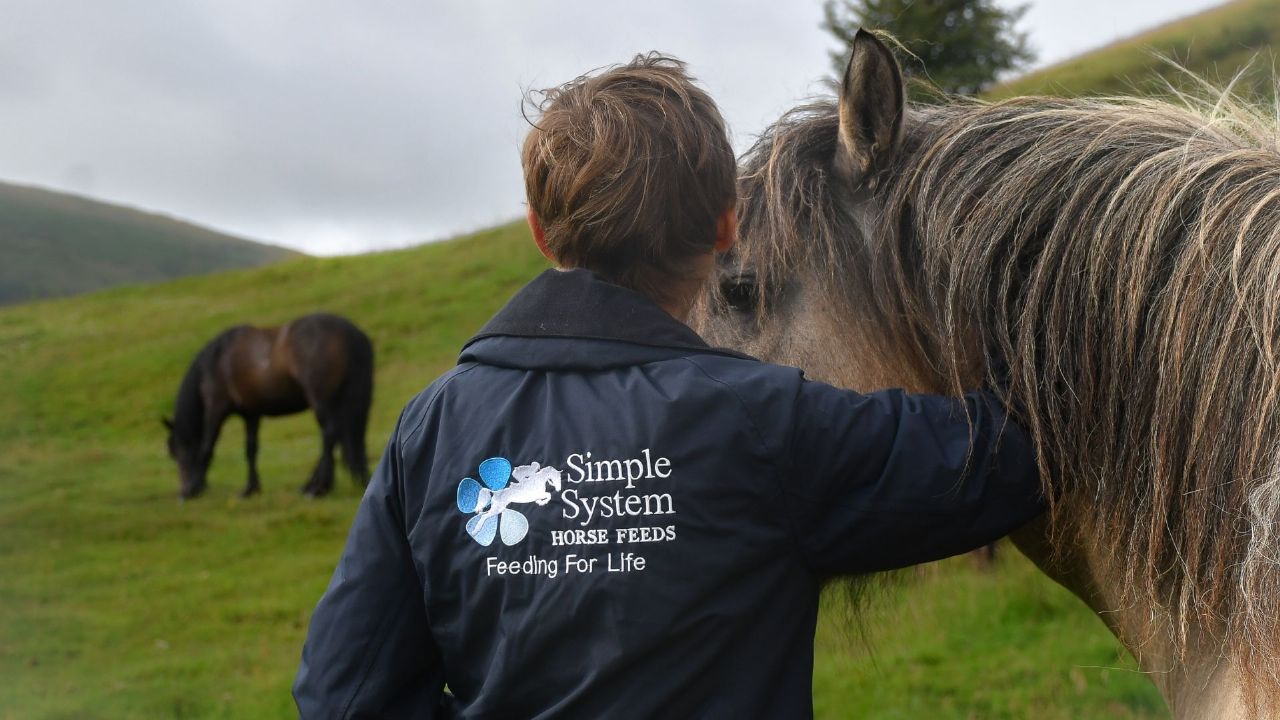Why do we recommend feeding horses from ground level?
How does the horse's jaw work? What happens if horses eat above ground level? Read the article to learn more...

What is good equestrian welfare?
My niece came home from primary school with a work sheet about animals. A picture of a horse looking over a stable door was captioned “I am a horse. I live in a stable and I eat oats and hay.’’ Oh dear! Whilst for many horses this is a sad reality, it is very far from delivering good welfare.
Increasingly, we are all more aware of the 3 Fs – friends, forage and freedom, to address the needs of a horse as herd-living, plains dwelling, obligate herbivore. However aware of the 3 Fs we are, putting them into practice isn’t always achieved, maybe because the implications are not well understood?
Friends, because horses are herd animals and need to socialise and support each other. It is not good welfare if their “friend” is the other side of a fence or only visible by craning their neck over the stable door. Friends need to share space, look out for each other, stand watch to allow a rest, groom and play.
Forage is not just a rationed amount, fed twice a day. It’s access to it at all times. A horse will become stressed if they cannot eat, and if they’ve not eaten forage for just 2 hours will suffer discomfort, or worse in work. After 4 hours of fasting, the risk of colic increases as well as ulcers, including those around the pyloric valve from the stomach to the small intestine, as bile can back-flow when it builds up in the duodenum. Forage is usually hay or grazing, but will also include dried forages, which may be offered soaked or chopped, such as grass, lucerne and sainfoin. Grazing is the best way to offer forage, but we can be very nervous of grazing for metabolically challenged horses. We give them hay, but hay is dried grass. The difference is that we all too often graze very short grass whereas hay is typically made from longer, more mature grass. This grass makes for much safer grazing.
Freedom is the space to gallop, breathe fresh air, interact with friends and access the best forage.
Good welfare is meeting the horse’s actual needs, not necessarily our perception of what we think is good welfare. Is it good welfare to shut a horse in a stable because it’s raining or to isolate them from companions? To offer processed food made from ingredients never encountered during their evolution? It is a sad fact that our misplaced endeavours to do right by our horses can actally be doing the opposite, exposing them to the same triggers for ill health that are currently experienced by humans – inflammatory conditions, metabolic issues, allergies and sensitivities.
Improving welfare and improving access to those ‘3Fs’ will result in our horses being happier, healthier and able to live longer more comfortable lives. A sore and elderly horse, in a small pen for a few hours and isolated in their stable with a restricted diet for the rest of the time, is not enjoying good welfare - however well loved they may be.
Welfare does not end with how we care for our horses. Breeders take responsibility for producing sound horses with good temperaments, fit to do the job they were bred for. However, for those that do not quite make the grade, what future for them? Highly bred performance horses may have more courage than an amateur needs, or can cope with, yet does not have the ability to fulfil the requirements of a competitive rider. What future then? In-bred horses of extreme type may not deliver issues for their breeder, but any subsequent owner may have soaring vet bills due to reduced immunity, metabolic issues, skin disorders and so on. Expensive, yes, but also impacting on the horse’s welfare.
Jane van Lennep, Director of Nutrition, Simple System Horse Feeds
If you'd like nutrition advice for your horse, contact the Simple System Feed Line on 01728 604 008, or complete our online form.
How does the horse's jaw work? What happens if horses eat above ground level? Read the article to learn more...
We're thrilled to be adding an exiting new event to the calendar for 2026!
Horses’ teeth change throughout their lives - they are continually growing and continually wearing, as they chew and grind their grazing and forage.